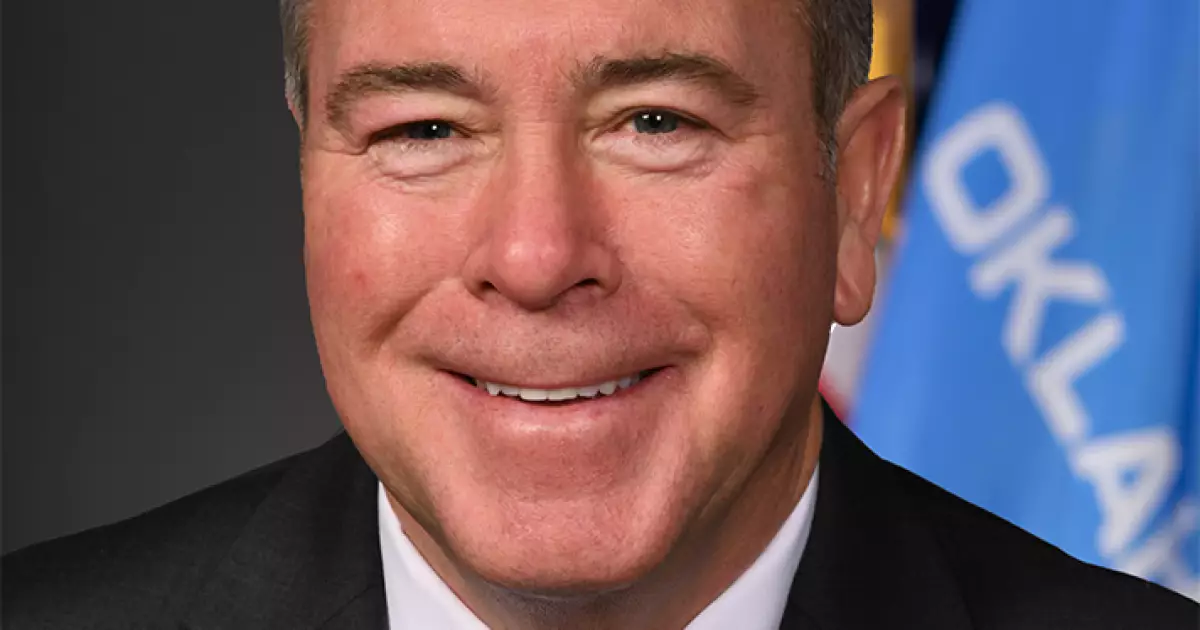The recent legal proceedings involving Todd Russ, the Oklahoma state treasurer, have erupted from a crucial debate over environmental, social, and governance (ESG) investment practices. Oklahoma’s passage of the Energy Discrimination Elimination Act in 2022 was a significant legislative move aimed at curbing the influence of firms that allegedly prioritize ESG factors over traditional financial considerations. Under this law, firms identified as “boycotting” the fossil fuel sector were prohibited from securing contracts worth more than $100,000 with state and local governments. However, this initiative met with considerable pushback, culminating in a July 2023 court injunction that rendered the legislation void due to a lawsuit brought forth by a concerned pension recipient.
The stakes are high, as the implications of this law extend beyond legal frameworks into the hearts of ethical investment practices and the direction of public finance in Oklahoma. The treasurer’s office, led by Russ, claimed that major financial institutions like Barclays, BlackRock, and JP Morgan Chase fell under the restrictions imposed by this legislation. Consequently, this has caused significant fallout in public-private partnerships and financial markets.
In a surprising turn of events, FOIA Professional Services, LLC brought a lawsuit against Russ and members of his office, accusing them of not only withholding essential documents but possibly destroying pertinent records related to the controversial ESG law. This accusation raises pressing questions about accountability and transparency within government operations. Open records laws exist to promote transparency and prevent the executive branch from acting in secrecy; failure to adhere to these laws could erode public trust in governmental systems.
The company claims that the treasurer’s office inadequately complied with their request for records concerning financial institutions implicated in the ESG discussions. Citing claims of withheld documents, including emails that Deputy Treasurer Jordan Harvey reportedly sent from her personal email, the lawsuit contends these actions may violate transparency laws designed to protect public information. The allegations imply an unsettling possibility: that officials may have attempted to conceal crucial information from public scrutiny.
Central to the lawsuit are a set of emails exchanged between Harvey and what are referred to as “friends in DC.” Allegations indicate these communications may have attempted to manipulate the narrative surrounding Oklahoma’s ESG policies by providing the treasurer’s office with guidance on addressing issues raised by major financial institutions regarding their ESG practices.
These communications reportedly came at a critical time when discussions were taking place regarding the inclusion of BlackRock and others on the list of restricted financial companies. An email from Harvey reads, “Hope this helps the governor,” indicative of a potentially coordinated response aligned with political interests rather than pure public accountability. The insinuation is that strategic messaging was prioritized over transparency, which could undermine public confidence in the state’s financial decisions.
The fallout from these allegations can have broad repercussions, not only for the operational integrity of the treasurer’s office but also for the future of ESG investment practices in Oklahoma. As firms assess the risk of being classified as ‘boycotting’ the fossil fuel industry, they may reconsider partnership opportunities—potentially escalating costs and limiting access to capital for state projects.
Additionally, the legal and public relations ramifications of this controversy invite further scrutiny of similar legislative movements across the United States. With ESG becoming a polarizing subject on the national stage, outcomes from this case could serve as benchmarks for how other jurisdictions may approach similar laws.
The lawsuit against Todd Russ and his office speaks to a larger narrative surrounding governmental transparency and ethical governance. As more details emerge regarding the potential mishandling of documents and the intent behind the legislation, both state officials and public stakeholders must reflect on their roles in fostering accountable governance.
With heightened scrutiny on the treasurer’s office, a clarion call for information sharing and adherence to open records laws has never been more pertinent. It is critical for organizations, citizens, and investors alike to remain vigilant in demanding accountability from their government, ensuring that decision-making processes remain transparent and in the public’s best interest. As Oklahoma navigates this legal storm, the outcomes may very well shape the future landscape of investment practices in the state and beyond.

